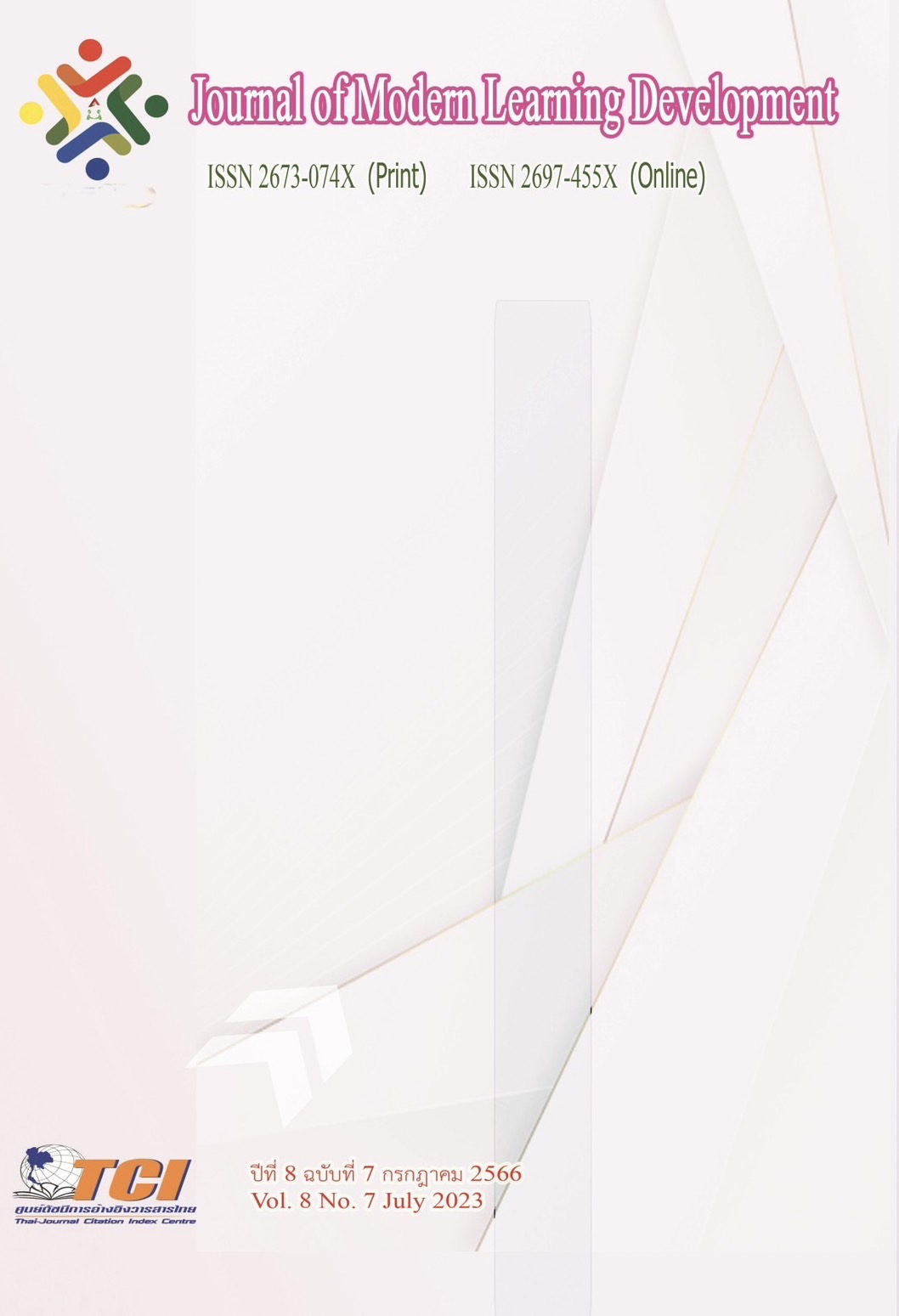Mentor team : Important Role in Poverty Eradication and Development of People of all Ages According to the Philosophy of Sufficiency Economy
Main Article Content
Abstract
The National Strategy has established the principles of creating opportunities and social equality to reduce inequality, decentralize the economy, strengthen social power, and increase the capacity of communities. Therefore, the government has a project to eradicate poverty and develop people of all generations in a sustainable manner according to the philosophy of sufficiency economy. sustainable according to the philosophy of sufficiency economy.It was found that the mentoring team plays an important role in implementing the four principles as follows: T1 is attitude towards life towards work and problems, T2 is skill and vocational skills, and T3 is family capital. (household potential) and community capital, Thor4 is to find a solution. By going in and providing assistance to 3 target groups by a team of mentors proactively going to the household area. To analyze problems and approaches to solve problems together with the target households to prepare a household development plan.to solve household problems that fall out of the criteria by various dimensions to meet the needs of households By using the philosophy of sufficiency economy to eliminate poverty and develop people of all ages sustainably. The mentoring team plays an important role in reducing poverty and inequality. Develop and stimulate the economic system at the grassroots level to recover with stability and strengthen the community's potential for strength and self-reliance in a sustainable manner.
Article Details
References
ณัฏฐพงศ์ ทองภักดี. (2550). ปรัชญาเศรษฐกิจพอเพียง:ความเป็นมาและความหมายปรัชญา เศรษฐกิจพอเพียงกับการบริหารการพัฒนา. กรุงเทพมหานคร: สถาบันบัณฑิตพัฒนาบริหารศาสตร์.
สยามอรุณ ศรีมรกต และ ยงยุทธ วัชรดุลย์. (2559). เป้าหมายการพัฒนาที่ยั่งยืน 17 ประการของสหประชาชาติเพื่อโลกอนาคต. วารสารวิจัยสหวิทยาการไทย. 11 (3), 1-7.
สำนักงานคณะกรรมการพัฒนาการเศรษฐกิจและสังคมแห่งชาติ. (2561). ยุทธศาสตร์ชาติ 20 ปี (พ.ศ. 2561– 2580). กรุงเทพมหานคร: สำนักงานคณะกรรมการพัฒนาการเศรษฐกิจและสังคมแห่งชาติ.
สำนักงานคณะกรรมการพัฒนาการเศรษฐกิจและสังคมแห่งชาติ. (2565). การแก้ปัญหาความยากจนและการพัฒนาคนทุกช่วยวัยอย่างยั่งยืน ตามหลักปรัชญาของเศรษฐกิจพอเพียง แบบ “พุ่งเป้า” บนหลักฐานข้อมูลเชิงประจักษ์ TPMAP. กรุงเทพมหานคร : สำนักงานสภาพัฒนาการเศรษฐกิจและสังคมแห่งชาติ.
สำนักงานสภาพัฒนาการเศรษฐกิจและสังคมแห่งชาติ. (2563). การขจัดความยากจนและพัฒนาคนทุกช่วงวัยอย่างยั่งยืนตามหลักปรัชญาของเศรษฐกิจพอเพียง. กรุงเทพมหานคร: สำนักงานสภาพัฒนาการเศรษฐกิจและสังคมแห่งชาติ.
สำนักงานสภาพัฒนาการเศรษฐกิจและสังคมแห่งชาติ. (2565). คู่มือการขจัดความยากจนและพัฒนาคนทุกช่วงวัยอย่างยั่งยืนตามหลักปรัชญาของเศรษฐกิจพอเพียงสำหรับการปฏิบัติงานในระดับพื้นที่. กรุงเทพมหานคร: สำนักงานสภาพัฒนาการเศรษฐกิจและสังคมแห่งชาติ.
สุเมธ ตันติเวชกุล. (2549). ปรัชญาเศรษฐกิจพอเพียงพระเจ้าอยู่หัว. กรุงเทพมหานคร: แสงดาว.
สุเมธ ตันติเวชกุล. (2557). ตามรอยพระยุคลบาทครูแห่งแผ่นดิน. (พิมพ์ครั้งที่ 2). กรุงเทพมหานคร: สำนักพิมพ์แห่งจุฬาลงกรณ์มหาวิทยาลัย.


